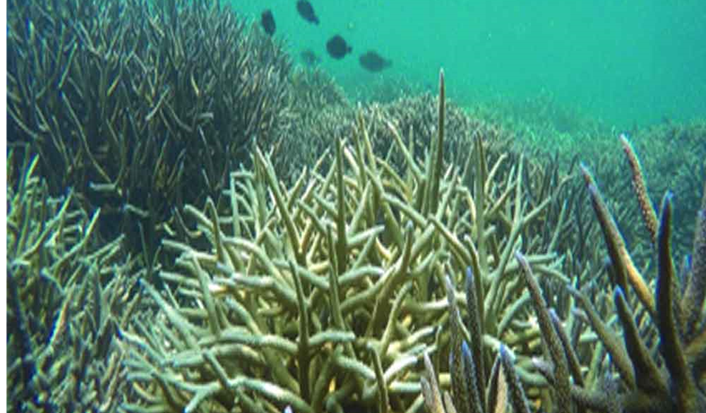
These marine heat waves pose a severe
threat to coral health, said scientists at the ICAR-Central Marine Fisheries Research
Institute (CMFRI) as they observed alarming levels of coral bleaching,
indicating significant stress on marine ecosystems in the region.
Coral bleaching occurs when the water
temperature becomes excessively warm, causing corals to expel the microscopic algae
residing within their tissues. Experts say bleached corals are not dead but are
at risk of starvation and disease.
“Such
heat stress levels signify a severe threat to coral health, leading to
extensive bleaching where corals lose the symbiotic algae (zooxanthellae),
compromising their survival by depriving them of essential nutrients. If the
DHW continues to rise, reaching beyond 12 °C weeks, it could precipitate an
unprecedented biodiversity crisis due to multispecies mortality,” KR Sreenath,
senior scientist at CMFRI, said on Monday 6 May.
According
to the National Oceanic and Atmospheric Administration (NOAA), this level of
DHW poses a substantial risk of coral bleaching, threatening the region’s
diverse marine ecosystems.
Corals are living organisms that make
up the reefs and provide the ecosystem for marine life to thrive, especially
fish. Coral
reefs are a natural barrier, protecting these islands against the swelling of
the seas, and keeping salt water out of the limited freshwater sources in the
region.
The
heatwaves also threaten other critical marine habitats, including sea-grass
meadows. Similar to corals, sea-grass meadows are experiencing detrimental
impacts due to the heat waves such as impaired photosynthesis, reduced growth,
and hindered reproductive functions.
The
waters of the archipelago, though, are spread over 400,000 square kilometres
and are rich in marine life and resources. But the CMFRI observation has come
as an alarm to the authorities.
Furthermore,
the heat waves also endanger critical marine habitats like sea-grass meadows,
impairing photosynthesis, growth, and reproductive functions. The degradation
of these ecosystems can disrupt local marine food webs, impacting a wide range
of species, from fish communities to marine mammals like dugongs and dolphins.
To address these challenges, CMFRI is
actively researching ecological changes affecting coral reefs and has initiated
a national project to investigate coral reef resilience. By integrating advanced climatic
modeling, deep-learning, and ecological research, the institute aims to develop
resilience-based management strategies to ensure the long-term sustainability
of coral reef ecosystems.